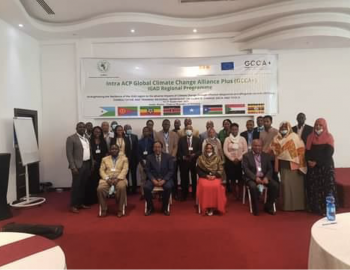WORKING PAPER: Building trust in forest carbon payments: Learning from the world of financial accounting
WORKING PAPER: Building trust in forest carbon payments: Learning from the world of financial accounting
The Paris Agreement on climate change saw 195 countries agree to keep the global temperature rise below 2°C in order to avert dangerous climate change. Over a third of the carbon mitigation needed annually to meet this challenge could be met by reforestation and reducing global deforestation.
Reducing Emissions from Deforestation and Degradation (REDD+), which aims to incentivise developing countries to keep their forests standing, is critical in this regard. The concept of REDD+ was first conceived in the 2000s, with many actors believing it would solve global deforestation. However, while expectations were very high, the mechanics of implementing REDD+ proved difficult and its early problems were broadcast very publicly. This led to a lack of trust between many of the actors trying to design and scale up a REDD+ mechanism and its intended beneficiaries. Stakeholders were left with the perception that REDD+ systems are extremely complex; that there are concerns around its environmental and social robustness; and that it is difficult to achieve results on the ground. These concerns led many external stakeholders, including many private sector actors, to take a step back.
Now is a crucial time to overcome this lack of trust, to open up the possibility of scaling up REDD+ investment and implementation to the levels originally envisioned – levels required to combat climate change. There are a number of upcoming opportunities to scale up results-based payments for REDD+, including the following:
- The Paris Agreement requests substantial cuts in greenhouse gas emissions by countries, and it specifically highlights REDD+ as a mechanism. It also sets out provisions for transferring emissions reductions between countries, but it has not yet been decided whether this will include REDD+ emissions reductions.
- The International Civil Aviation Organization is launching an offset mechanism for international aviation. It is looking to set eligibility criteria for its ‘early action’ phase and for the full programme, but it has not yet been decided to what extent it will accept emissions reductions from REDD+ as eligible offsets.
- The Green Climate Fund – the primary vehicle for climate finance under the United Nations Framework Convention on Climate Change (UNFCCC) – recently approved a US$500 m. pilot programme for REDD+ results-based payments. This is one step towards its larger ambition for a full-scale programme for REDD+ results-based payments.
These are very real opportunities for REDD+, but they will be realised only if trust is built in REDD+ approaches. This paper argues that REDD+ actors can learn from trust-building in financial markets. Financial accounting in particular has played a key role in maintaining investors’ confidence in mainstream capital markets. The International Accounting Standards Board’s Conceptual framework for financial reporting identifies six characteristics, or guiding principles, for financial accounting, including relevance, faithful representation and comparability.1 These characteristics go beyond those generally used to assess REDD+ (the UNFCCC’s transparency, accuracy, consistency, completeness and comparability – TACCC – reporting principles). This paper explains how these financial accounting characteristics can be applied to accounting for the impacts derived from REDD+ efforts, and how they can help build trust in the same way as they do in financial markets. It argues this can be achieved in the following ways:
- Tailoring REDD+ impact reporting to end users of the information. Tailored REDD+ accounting can be used to inform implementation and provide decision-relevant information and a clear picture of REDD+ impacts to engage important stakeholders, including private sector investors and agricultural producers.
- Increasing the robustness and transparency of REDD+ approaches. Working towards the provision of emissions data with good coverage; reporting uncertainty data using common methodologies; and a third party rating agency for REDD+ programmes and projects are among many interventions that will help to improve stakeholders’ confidence that REDD+ is environmentally and socially robust.
- Harmonising and standardising REDD+ accounting approaches. A number of different REDD+ approaches and frameworks have evolved for results-based payments, but each has a different set of requirements. A roadmap towards a harmonised set of requirements for results-based payments (to provide another level of detail beyond that provided by the Warsaw Framework) is needed to reduce complexity.



